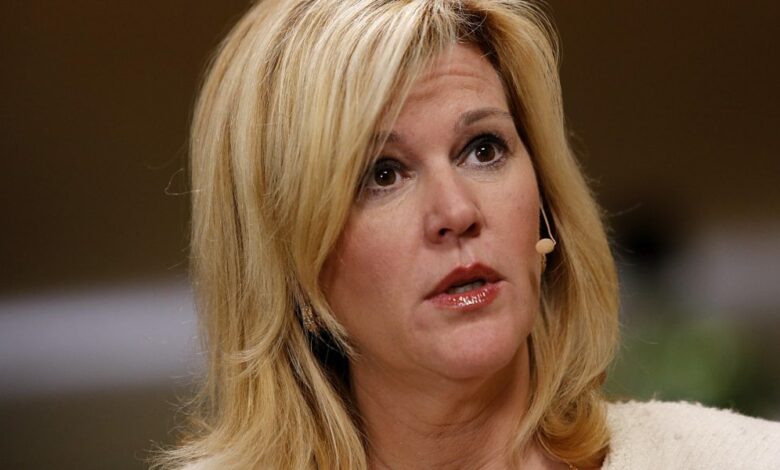‘Oracle of Wall Street’ sees years of declines in home prices


Meredith Whitney, deemed the “Oracle of Wall Street” for successfully calling the financial crisis, says home prices are likely to fall substantially, and the reasons have to do with habits picked up by young guys.
“You have men staying single longer…and then you have what I call a growing crisis of the young American male…they’re twice as likely to live at home than women. So one out of five young men live at home with their parents, and these aren’t young men going to college and coming home for holiday breaks, these are young, grown men choosing to live at home,” Whitney told CNBC this morning.
The outcome could have profound effects on the housing market, she said.
“I think you’re going to start to see housing prices begin a multi-year/decade decline, just due to supply/demand dynamics,” Whitney said. “So you’ve had a demand, supply imbalance: more demand, less supply. And I think that’s going to invert.” So what that means is supply will then outweigh demand, which is why she sees home prices falling for years.
Whitney’s take is based in part on demographic shifts. The bulk of housing is owned by people and households over the age of 40, she said. But household formations are the lowest they’ve been in more than a century, which translates into a demand problem, she said today.
Yet, many experts have predicted that home prices will only continue to go up from here. Mortgage rates reached a two-decade high last year and people were still buying homes—and because there simply aren’t enough homes, demand outweighs supply, keeping home prices high. Whitney, however, is calling it differently as shifts within the housing world, and apparently among young male adults, occur. It’s not clear what data she is referring to here or in the information above.
Whitney argued that lower-than-ever interest rates “ballooned inflation, and particularly housing inflation,” which has priced so many people out of the market. “If you’re single, the chances that you’re going to be able to afford a home on your own is less likely than if you’re a dual-income family,” Whitney said. Then, she goes on to say that homeowners hold much more wealth than non-homeowners.
Whitney has long discussed a “silver tsunami” set to strike the housing market as baby boomers age and their homes are freed up. “You’ll see a supply-demand dynamic shift,” the founder and CEO of Whitney Advisory Group previously said, echoing her claims today.
“Normally you would think as rates go up, home prices would go down, and that hasn’t happened over the last two years,” she said. “I think home prices will normalize because as more inventory, more supply comes on the market, you’ll see a true clearing price that is lower than it is today. So I would say 20% lower than it is today.”
Home prices rose 6% in January; a lot of people think they’ll keep going up. Goldman Sachs predicted home prices will rise 5% this year and 3.7% next year, in January. Capital Economics predicted home prices will rise 5% this year, in March. CoreLogic predicted they’ll increase by 3.1% this year (from Feb. 2024 to Feb. 2025), this month.
Toward the end of last year, Whitney said 51% of people over the age of 50 are set to downsize to smaller homes, citing an AARP report at a conference, and it would bring more than 30 million housing units to the market. More supply, or better said, supply that outweighs demand, would trigger a drop in home prices.
However, this concept of a “silver tsunami” has been widely refuted. A recent analysis from Freddie Mac revealed that the nine million homes set to come onto the market in the next decade as baby boomers age aren’t going to really disrupt the market, for one, because younger generations will enter at the same time—meaning housing demand will continue to rise. “Some have warned of a ‘silver tsunami’ as aging boomers look to sell their homes, flooding the market with inventory,” the Freddie Mac report read. “But as this analysis demonstrates, the tsunami is more like a tide, bringing a gradual exit that will mostly be offset by new entrants.” Additionally, Eric Finnigan, vice president of demographics for John Burns Research and Consulting, recently told Fortune that baby boomers aren’t going to crash the market because they’re powering it. His team found it takes about four deaths to equate to one home listed for sale (because a partner might hold onto it, or it may be passed down to children). The number of homes listed for sale due to deaths is rising, and it will continue to, but “it’s not a deluge,” Finnigan said. “It’s not a tidal wave of homes being listed for sale because of all these dying baby boomers.”
Source link




